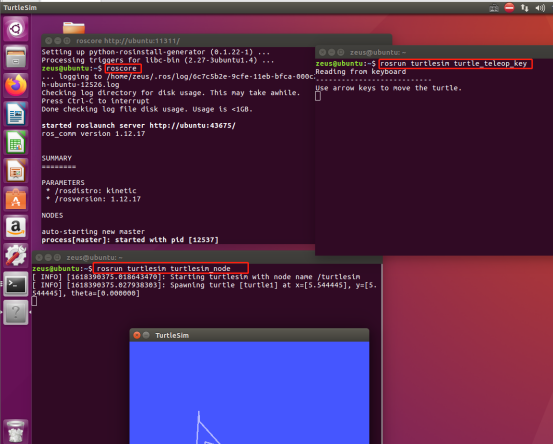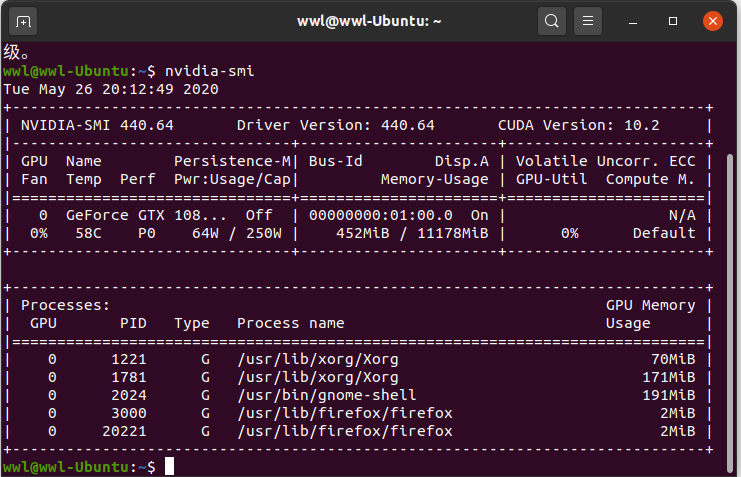

It should already be installed but no harm in double checking. Make sure you have Python installed on your system So, what are your options when you see Python command not found error on Ubuntu? Let me go over them. To summarize, you have Python installed on Ubuntu already. Python 2 is no longer supported and Python 3.x is what you get on Ubuntu. Similarly, when Python version 3 was released, distributions started providing both python2 and python3 packages. Other applications or libraries also specified python or python2 in their code.Įventually, Python version 1 was discontinued completely but the package continued to be named python2. So, they named the newer Python version python2 to distinguish between the two. When Python released version 2, Ubuntu and other distros had to provide support for both Python version 1.x and 2.x. It’s because the Python language is not installed as python but python3 or python2 (in some older Ubuntu versions).Īt some point in time in the distant past, Python was actually available as python package/executable. Why there is no python command found on Ubuntu?

The python command is actually python3 here. If you pay attention to the error message, it clears a lot of things. Command ‘python’ not found, did you mean:Ĭommand ‘python’ from deb python-is-python3 However, if you try to use the python command in Ubuntu (and some other distributions), it will throw an error. Hi, i see this error sudo add-apt-repository ppa:deadsnakes/ppa -y Traceback (most recent call last): File “/usr/bin/add-apt-repository”, line 364, in sys.exit(0 if addaptrepo.main() else 1) File “/usr/bin/add-apt-repository”, line 347, in main shortcut = handler(source, **shortcut_params) File “/usr/lib/python3/dist-packages/softwareproperties/shortcuts.py”, line 40, in shortcut_handler return handler(shortcut, **kwargs) File “/usr/lib/python3/dist-packages/softwareproperties/ppa.py”, line 82, in _init_ if _debug_symbols: File “/usr/lib/python3/dist-packages/softwareproperties/ppa.py”, line 120, in lpppa self._lpppa = (name=self.ppaname) File “/usr/lib/python3/dist-packages/softwareproperties/ppa.py”, line 107, in lpteam self._lpteam = self.lp.people(self.teamname) File “/usr/lib/python3/dist-packages/softwareproperties/ppa.py”, line 98, in lp self._lp = login_func(“%s.%s” % (self._module_, self._class_._name_), File “/usr/lib/python3/dist-packages/launchpadlib/launchpad.py”, line 494, in login_anonymously return cls( File “/usr/lib/python3/dist-packages/launchpadlib/launchpad.py”, line 230, in _init_ super(Launchpad, self)._init_( File “/usr/lib/python3/dist-packages/lazr/restfulclient/resource.How do you run a Python program in the Linux terminal? Like this, right? python program.py Even better, you can video stream tutorials from Cloud Raya’s Youtube channel. Hopefully you find this tutorial article helpful for your present and up coming project.įor more articles and tutorials about technology, please visit Cloud Raya’s Knowledge Baseand Blog.

#SUDO APT UPDATE PYTHON INSTALL#
To sum up the article, it is easy to install previous versions of Python on Ubuntu 22.04 Jammy LTS thanks to deadsnake team’s PPA. Either by changing python3 symlink or using update-alternatives command. Never ever change the default python version of Ubuntu as it will break many things. Then verify it using pip -version Important Thing to Note The previous python installation does not provide pip by default, so you will have to do: python3.x -m ensurepip -upgrade Note: Python2.7 (all), Python 3.6 (bionic), Python 3.8 (focal), Python 3.10 (jammy) are not provided by deadsnakes as upstream ubuntu provides those packages. The maintainer of the PPA informs that they only ship Python 3.7 as the lowest version for Jammy, so if you wish to install the more older version, you might want to install it for source. You can then install previous Python versions, for example Python 3.7: sudo apt install python3.7 Then, we will import deadsnake’s PPA: sudo add-apt-repository ppa:deadsnakes/ppa Sudo apt install python3.8 Installing Pythonįirst of all, you’ll need the following package installed so we can import any PPA (Personal Package Archive) repositories: sudo apt install software-properties-common -y Sudo add-apt-repository ppa:deadsnakes/ppa -y

#SUDO APT UPDATE PYTHON HOW TO#
In this article, I will show you how to install Python 3.7 up to 3.9 TLDR sudo apt install software-properties-common -y Indeed, you can install more versions via the upstream repository but it only provides Python 2.7 and Python 3.10 modules. Canonical recently announces the general availability of Ubuntu 22.04 Jammy Jellyfish LTS on April 21, 2022.


 0 kommentar(er)
0 kommentar(er)
